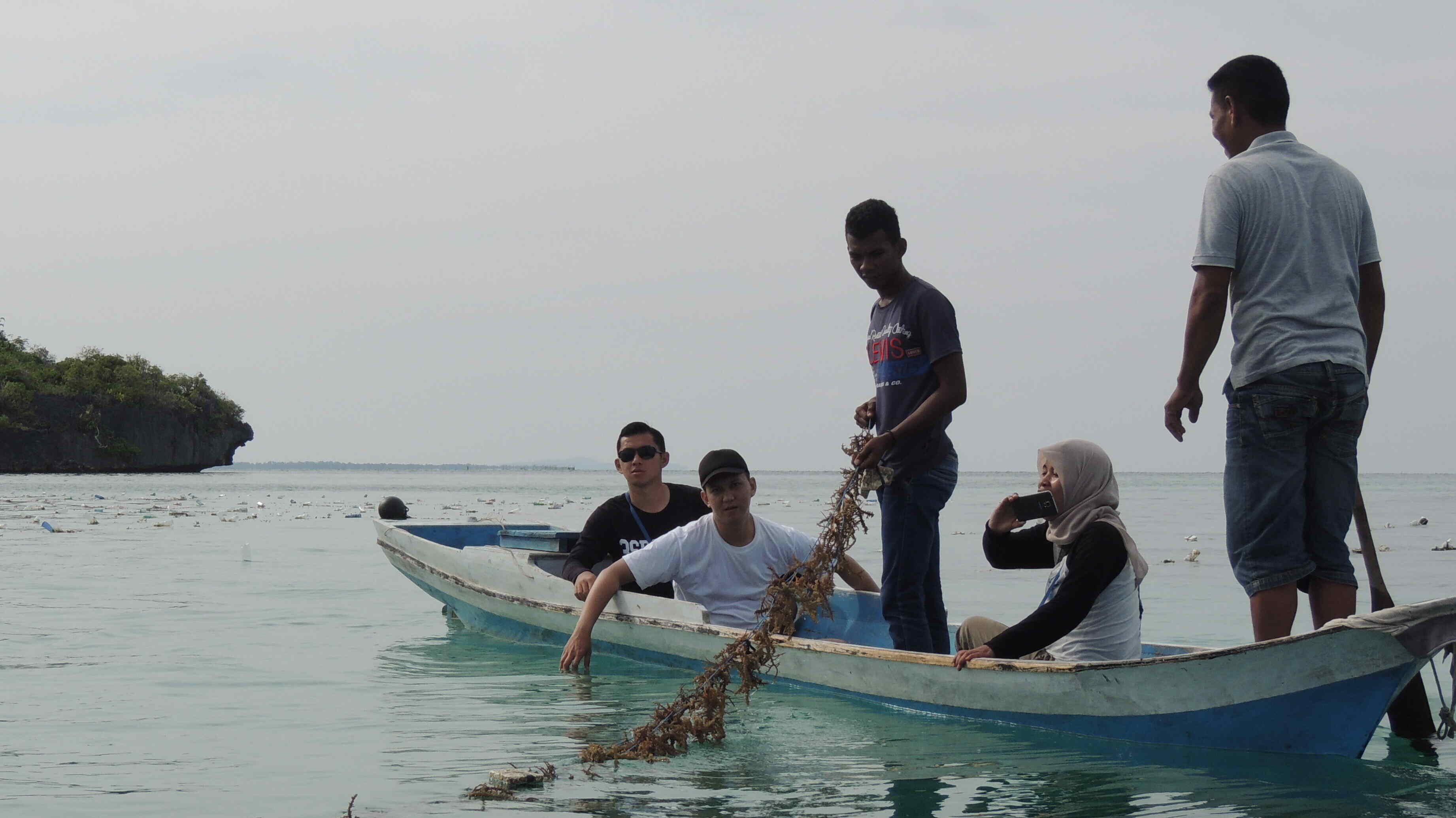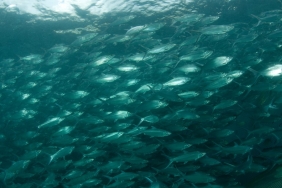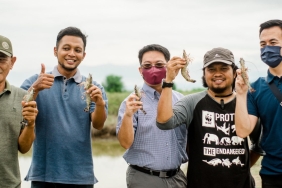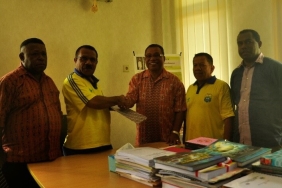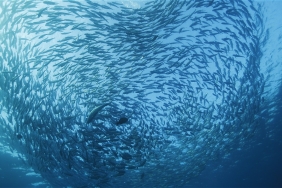EAFM (ECOSYSTEM APPROACH TO FISHERIES MANAGEMENT) ECOSYSTEM-BASED FISHERIES TRAINING ACTIVITIES
This integrated management is then contained in the fisheries management model with an ecosystem approach (Ecosystem Approach to Fisheries Management, hereinafter abbreviated as EAFM) which is currently mandated in the Director General of Capture Fisheries Regulation No. 18 of 2014. In simple terms, EAFM can be understood as a concept of how to balance economic objectives in fisheries management (fishermen's welfare, fairness in fish resource utilization, etc.) while still considering knowledge, information and uncertainties about biotic, abiotic components and human interactions in aquatic ecosystems through an integrated, comprehensive and sustainable fisheries management. The EAFM study in the three locations also formulated recommendations for improving fisheries management based on each domain as a guideline for the NTT Provincial Government, Regional Marine Protected Area Managers and related partners in managing fisheries resources and hopes to be integrated with relevant planning documents (MPA Management and Zoning Plan documents, Fisheries and Marine Strategy Plan documents and Regional Development Work Plan documents).
As a follow-up to the above, the WWF Indonesia Foundation in collaboration with the EAFM Learning Center of Artha Wacana University Kupang, the Marine and Fisheries Service of NTT Province, the Directorate of SDI KKP and Puslatuh BRSDM KKP conducted EAFM training activities which were held on April 20-21, 2021 at the Aston Hotel, Kupang City. This training activity was attended by 25 participants from Kupang City, Alor Regency, East Flores Regency and West Manggarai Regency from various institutions, including: Kupang Marine Conservation Area Center (BKKPN), Alor District Branch Office of the NTT Provincial Marine and Fisheries Service, Sikka, East Flores and Lembata District Branch Offices of the NTT Provincial Marine and Fisheries Service, Manggarai, West Manggarai and East Manggarai District Branch Offices, Fisheries Service of Alor Regency, Fisheries Service of East Flores Regency, Fisheries and Food Security Service of West Manggarai Regency, Tribuana University Kalabahi, Larantuka Institute of Keguruan and Technology, El Bajo Polytechnic as well as representatives of fishing communities and fisheries companies in Alor, East Flores and West Manggarai Regencies. In the introduction of the EAFM training activity, Mr. Donnie Bessie from Learning Center EAFM UKAW Kupang stated that: "Why do we need EAFM? Basically, fisheries management needs to be maintained, managed so as not to exceed the tolerance limit. The element of caution is needed in its utilization, for the sustainability of our children and grandchildren. The principle of EAFM is fisheries management that balances the ecosystem so that it is maintained, but the community also prosper socially and economically." "This EAFM training activity aims to increase the capacity of local governments, academics and fisheries utilization actors in NTT Province to support collaborative sustainable management of coastal and marine resources and improve community welfare in Alor, East Flores and West Manggarai Regencies. Especially in Alor Regency which is a Natural Reserve Conservation Area of Pantar Strait Waters and Surrounding Seas that has been established by the Ministry of Maritime Affairs and Fisheries in 2015," said Tutus Wijanarko as Project Executant of WWF Indonesia Foundation.

